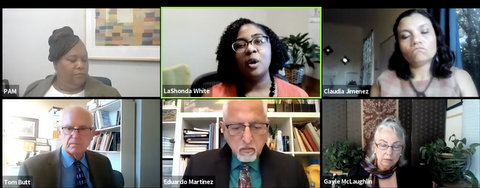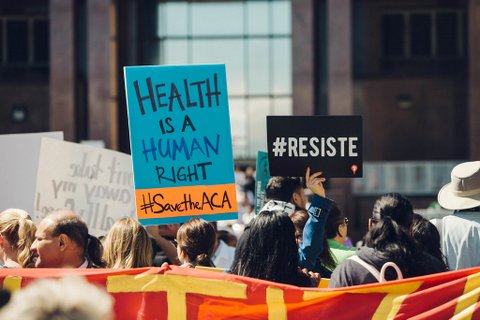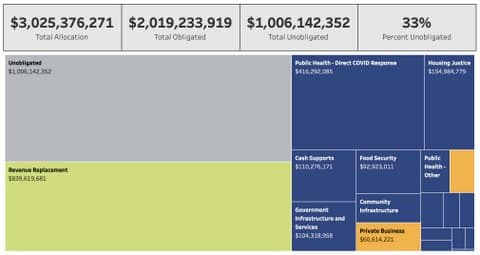
20 May Richmond Will Receive $27.7 Million in Federal Funding

(Screenshot captured by Mathew Miranda / The CC Pulse)
By Mathew Miranda
Richmond is expected to receive $27.7 million, an increase of almost $7 million from the initial $20.8 million allocation, under the American Rescue Plan Act.
The city’s finance department shared news of the increase and presented its potential uses during Tuesday night’s City Council meeting. The funding would likely help Richmond significantly over the next few years. It is intended to assist governments in supporting public health expenses, addressing economic impacts, replacing public sector revenue and providing premium pay for essential workers. All the funding must be used by the end of 2026.
Over the past 45 days, the city has collected input from residents, unions and businesses on how to use the money. Senior Management Analyst LaShonda White presented the input in eight categories based on common recommendations.
Revenue and City Services
- Mitigate negative impacts on the city’s general fund
- Trust funds
- Vehicle replacement
- Rehire staff
- Abatement
- Fund pilot programs
Employee Premium Pay
- Deliver assistance to workers and families
- Bonus pay to city employees
Public Health
- Addressing health disparities and social determinants of health
- Purchase personal protective equipment
- Mental health services
- Health fairs
Infrastructure
- Public facilities
- Street pavement
- Traffic calming
Housing
- Rental and homeowner assistance
- Housing navigation services
- Clean up toxic sites
Economic services
- Loan programs
- Addressing food insecurity
- Small business outreach and support
- Workforce development
Broadband
- Free computers
- Expansion of WiFi to end the digital divide
Outreach and other
- Community needs assessment
- American Rescue Plan Act outreach and access
- Public communication
- Childcare
White said Richmond’s next step is to take all the feedback received and align it with rules provided by the U.S. Department of Treasury. This will allow city staff to know which recommendations are eligible.
White said that staff hopes to return to the council next month with recommendations on how to allocate a portion of the money for the 2021-22 fiscal year. The first allocation will likely be given in June with the second installment one year later. City staff will later propose a plan for the remaining funds.
“We do not have recommendations at this time, but ideas could be to pay the city back for revenue lost during the last two fiscal years, fund appropriate items recommended by the Reimagining Public Safety Task Force and fund eligible infrastructure projects,” White said.
Based on current estimates, the city has lost approximately $15 million in revenue over the last two fiscal years.
Mayor Tom Butt suggested prioritizing finding out which recommendations could be eligible. He said the Treasury would not allow many of the ideas provided in the presentation. White said Butt may be correct as staff did not provide parameters when asking for feedback and still needs to investigate if those ideas are allowable.
“If they are just ineligible, then why waste time on it,” Butt said. “We should spend time on what’s allowable.”
Council member Melvin Willis advocated using the money for a housing preservation fund, free WiFi across the city and “dumpster days” to deal with Richmond’s illegal dumping issue. Willis referenced Oakland, which recently announced the return of “Bulky Block Party” events that allow residents to get rid of oversized junk for free. He suggested placing dumpsters in homeless encampments or the most impacted areas.
Council member Eduardo Martinez seconded Willis’ “dumpster days” and hoped that working with the community would create a “love for our blocks.” Martinez also raised the idea of hiring a grant writer who would solely write grants for the city to receive more funding. He said a valuable grant writer would bring in enough money to not only pay for their position but the needs of the city.
“The city needs more money. That’s obvious,” Martinez said. “We don’t have enough money.”
Council member Nat Bates said he believed the substantial amount of funding regulations may make it “impossible to spend the $28 million.” He also questioned if the city would be required to return any money unspent.
White said she did not anticipate any such problems arising as the city has two and a half years to disburse the funds.
“I have all the faith in Richmond that we will spend every single dime of that allocation,” White said. “We will not have to give anything back to the federal government.”






No Comments